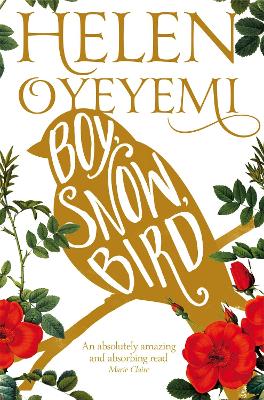Reviewed by gmcgregor on
Arturo's mysterious sister appears, having been sent away as a child when she turned out dark and threatened the family's secret, and offers to take Bird. But Boy doesn't want to part from her own child. Instead, she finds herself increasingly haunted by the adoration lavished on fair-complected Snow by everyone, including the Whitman family, compared to the treatment Bird receives...so Snow is sent away instead. As Bird grows up, she and her sister begin a correspondence, and a piece of Boy's past, long since left behind, draws nearer with revelations which could threaten the life she's built for herself.
I'd previously read Oyeyemi's short story collection What Is Not Yours Is Not Yours and very much enjoyed the way she played with themes, the multiple levels she was operating on at the same time, her richly evocative language. I found many of the same qualities in this novel, and thought Oyeyemi's take on the pervasive issue of race in America was interesting, as she's a black woman but not American. I appreciated the way she subverted expectations by building to what you think is going to be the moment where Boy turns against her stepdaughter by having her inflict the emotional cruelty of exile rather than the usual depiction of verbal and physical abuse. Oyeyemi is a skilled storyteller, and ably walks the line between a story that's interesting and pleasurable to read without sacrificing richer layers of meaning that push you to think. But that ending was...woah.
I'm not going to reveal the ending, even though it had a huge impact on my response to the book as a whole. But I also can't avoid talking about it, because it honestly made me think less of the book because of the way it played out. Oyeyemi places a huge, game-changing detail about a character in the last 5-10 pages of the book, barely giving the others time to react to it. The elicited reaction by the other characters doesn't feel quite earned, but the way that this reveal is made, and the details surrounding it are what really bothered me. In particular, I thought it played into problematic stereotypes about a marginalized community. Either way it was a major plot development and placing it where she did in the book was not effective. I thought I'd be able to recommend this book enthusiastically, but while I do still think it's a good book and worth reading, I'm not quite as sure about it as I might have been.
Reading updates
- Started reading
- 5 June, 2018: Finished reading
- 5 June, 2018: Reviewed
